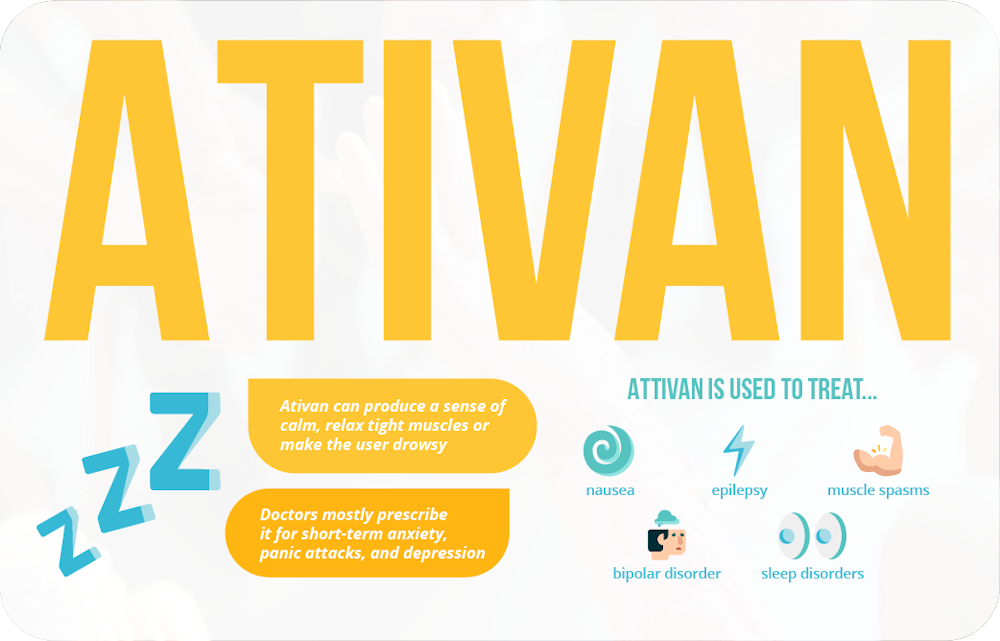Managing panic attacks with Ativan (lorazepam) can be effective, but it should be done under the guidance of a healthcare professional due to the potential for dependence, tolerance, and side effects. Here’s a general overview:
What is Ativan?
Ativan is a benzodiazepine, a class of medications known for their calming effects. It works by enhancing the effects of GABA, a neurotransmitter that inhibits brain activity, which can help reduce the intensity of anxiety and panic attacks.
Using Ativan for Panic Attacks
- Dosage: The dosage must be tailored to the individual. It’s usually taken as needed during a panic attack or in anticipation of one. The effects can be felt within 15-30 minutes and last for several hours.
- Short-Term Use: Ativan is generally prescribed for short-term or intermittent use due to the risk of dependence. Prolonged use can lead to tolerance, requiring higher doses to achieve the same effect.
- Emergency Situations: Ativan is often used in acute situations where a quick reduction in anxiety is needed. It’s effective in calming the intense physical and emotional symptoms of a panic attack.
1. Understanding Panic Attacks: Panic attacks are sudden episodes of intense fear or discomfort that peak within minutes. Common symptoms include palpitations, sweating, shaking, shortness of breath, and a sense of impending doom. These attacks can be overwhelming and disabling, often leading individuals to seek immediate relief.

2. Ativan (Lorazepam) Overview: Ativan, also known by its generic name Lorazepam, belongs to the benzodiazepine class of medications. It is commonly prescribed for anxiety disorders, including panic attacks, due to its fast-acting and calming effects. Ativan works by enhancing the activity of gamma-aminobutyric acid (GABA), a neurotransmitter that inhibits excessive brain activity, leading to a calming effect on the nervous system.
3. How Ativan Helps with Panic Attacks:
- Rapid Relief: Ativan is effective in providing quick relief from panic attacks, often within 20 to 30 minutes of administration. This makes it a preferred option for acute management.
- Calming Effect: The drug helps reduce the overwhelming physical and emotional symptoms of a panic attack, allowing the individual to regain control.
- Prevention of Escalation: By calming the nervous system, Ativan can prevent a panic attack from escalating into a more severe episode.
4. Dosage and Administration:
- Dosage: The typical dose for panic attacks ranges from 0.5 mg to 2 mg, taken as needed. However, the exact dosage should be determined by a healthcare provider based on individual needs and medical history.
- Administration: Ativan can be taken orally in tablet form or sublingually (dissolved under the tongue) for faster absorption.
5. Risks and Side Effects:
- Sedation: Ativan can cause drowsiness, which may impair the ability to drive or operate heavy machinery.
- Dependence: Long-term use can lead to physical and psychological dependence, making it crucial to use Ativan only as prescribed.
- Tolerance: Over time, the body may develop a tolerance to Ativan, requiring higher doses to achieve the same effect, which increases the risk of dependence.
- Withdrawal Symptoms: Abrupt cessation after prolonged use can lead to withdrawal symptoms such as anxiety, agitation, and in severe cases, seizures.
6. Precautions and Contraindications:
- Medical Conditions: Individuals with a history of substance abuse, respiratory disorders, or liver/kidney impairment should use Ativan with caution.
- Pregnancy and Breastfeeding: Ativan is not recommended during pregnancy or breastfeeding due to potential risks to the baby.
- Interactions: Ativan can interact with other medications, particularly those that depress the central nervous system (e.g., alcohol, opioids), potentially leading to severe side effects.
7. Alternatives to Ativan: While Ativan is effective for acute relief, other treatments may be more suitable for long-term management of panic attacks:

- Cognitive Behavioral Therapy (CBT): A psychotherapeutic approach that helps individuals identify and change thought patterns and behaviors that trigger panic attacks.
- Lifestyle Changes: Regular exercise, stress management techniques, and a healthy diet can help reduce the frequency and severity of panic attacks.
8. Conclusion: Ativan can be a powerful tool in managing panic attacks, offering rapid relief from debilitating symptoms. However, its use should be carefully managed under the guidance of a healthcare provider to minimize risks of dependence and side effects. For long-term management, combining Ativan with therapy and other medications may provide a more comprehensive approach to controlling panic attacks.